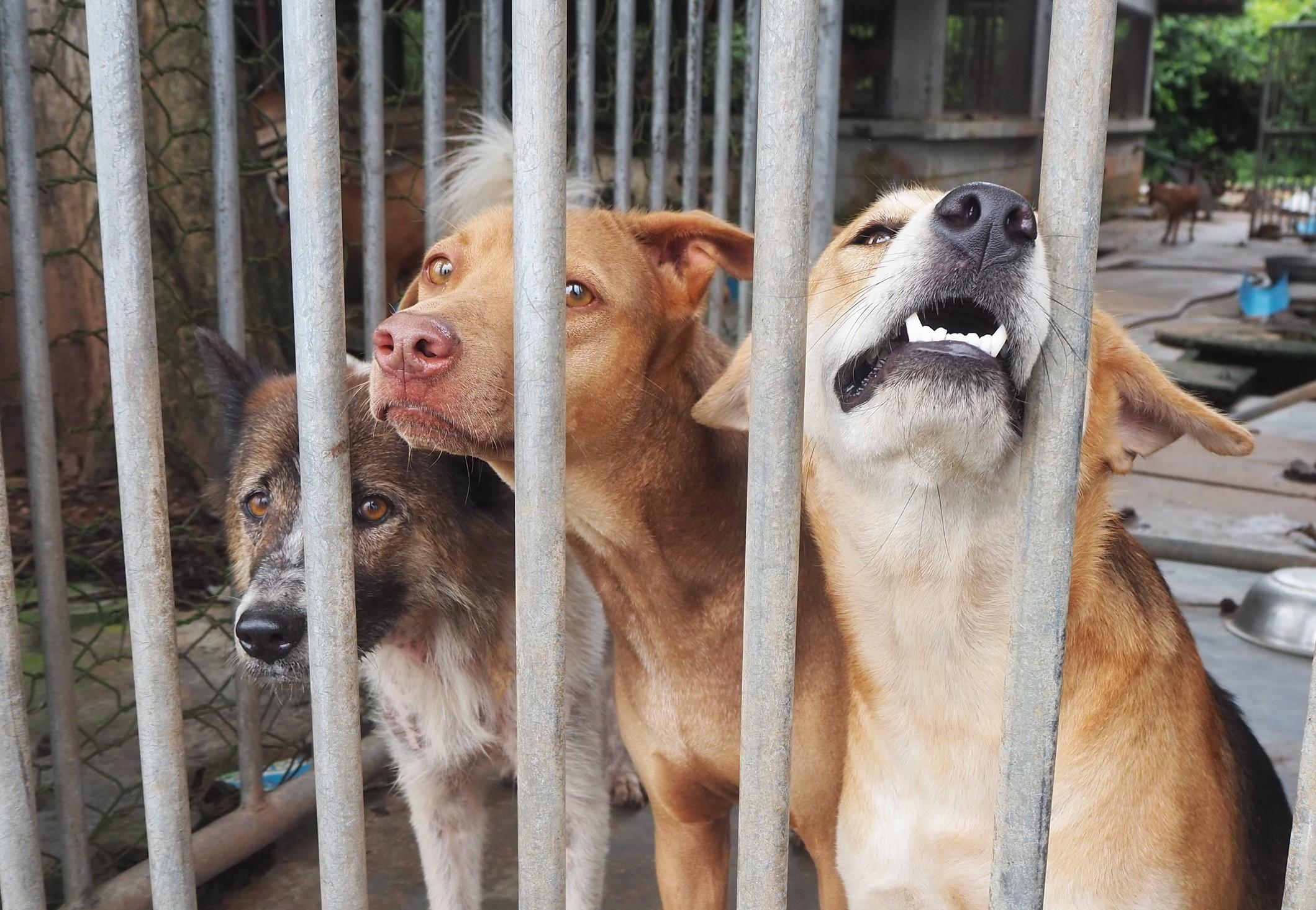Long Way Home Animal Rescue Saving Lives, One Step at a Time

Every year, thousands of animals are abandoned, mistreated, or lost on the streets and highways. These animals face harsh conditions such as extreme weather, lack of food and water, and potential harm from humans and vehicles. In response, many animal rescue organizations have been established across the globe to help save these animals.
One such organization is Long Way Home Animal Rescue, a nonprofit that rescues and transports animals over long distances to find them loving forever homes. This blog post will explore the challenges faced during Long Way Home’s animal rescue operations, the importance of animal rescue during long journeys, the impact of weather on animal rescue, transportation arrangements for rescued animals, ensuring the safety and health of animals during transport, collaborating with other local rescue organizations, funding sources, emotional effects on rescuers, and successful stories of Long Way Home’s missions.
Challenges Faced During Long Way Home Animal Rescue
Animal rescue missions can be challenging due to various factors such as finding and accessing animals in need, coordinating with other agencies, and ensuring the safety of both animals and rescuers. Long Way Home faces several challenges during its rescue operations, including:
- Lack of resources: Long Way Home operates on limited resources, and often relies on donations and volunteers to carry out its missions. These resources are scarce, and they often need to stretch their funds to meet the needs of more animals.
- Coordination difficulties: Finding and coordinating with other organizations for animal rescue operations can be difficult, especially when working in unfamiliar locations.
- Risky situations: Rescuers face dangerous situations while trying to reach animals in remote or unsafe areas. These risks can include hazards such as steep cliffs, fast-moving rivers, or wildlife predators.
Importance of Animal Rescue During Long Journeys
Long Way Home plays a crucial role in rescuing animals in danger during long journeys. Animals left stranded on highways or in remote locations face grave danger from starvation, dehydration, and exposure to harsh weather conditions. Often, animals are abandoned or lost during long journeys due to reasons such as accidents, relocation, or neglect. Long Way Home’s mission is to rescue these animals and transport them to safety. The organization provides a lifeline for the most vulnerable animals, giving them a fighting chance to find their forever homes.
Volunteering for Long Way Home Animal Rescue
Volunteering for Long Way Home Animal Rescue is a great way to lend a helping hand to animals in need and make a positive impact on the community. As an animal rescue organization, Long Way Home is dedicated to rescuing and rehabilitating homeless, abused, and neglected animals. The organization relies heavily on volunteers who are passionate about animal welfare and committed to making a difference.
Volunteers at Long Way Home Animal Rescue have various roles that they can fulfill depending on their interests, skills, and availability. Some volunteers may assist with animal care such as feeding, cleaning, grooming, and providing socialization and exercise. Others may help with administrative tasks such as answering phones, responding to emails, and organizing events, fundraisers, or adoption days.
One of the main benefits of volunteering at Long Way Home Animal Rescue is the sense of fulfillment and satisfaction one receives from knowing that they are making a difference in the lives of animals. By working with rescued animals, volunteers learn valuable skills such as patience, compassion, communication, and teamwork. They also get to meet like-minded individuals and build lasting friendships.
Another benefit of volunteering at Long Way Home Animal Rescue is the opportunity to gain experience in animal care, which may be beneficial for those interested in pursuing a career in the animal welfare industry. Volunteering provides hands-on experience with animals and allows volunteers to develop important skills that will help them succeed in the field.
Additionally, volunteering at Long Way Home Animal Rescue is a great way to give back to the community. By helping animals in need, volunteers are making a positive impact on society and helping to create a more humane and compassionate world.
In order to volunteer at Long Way Home Animal Rescue, individuals must first complete an application and attend a volunteer orientation session. During the orientation, volunteers will learn about the organization’s mission, policies, and procedures, as well as receive training on how to work with animals safely and effectively.
It is important to note that volunteering at Long Way Home Animal Rescue requires a significant level of commitment. Volunteers must be willing to work with animals that may have behavioral or medical issues and be available to work during the organization’s hours of operation. It is also important for volunteers to have reliable transportation to and from the rescue facility.
In conclusion, volunteering for Long Way Home Animal Rescue is a rewarding experience that provides numerous benefits to both animals and volunteers. By dedicating their time and efforts to helping animals in need, volunteers are making a positive impact on society and contributing to the overall welfare of animals.
Impact of Weather Conditions on Animal Rescue During Long Journeys
Weather conditions can significantly impact animal rescue operations, especially during long journeys. Harsh weather conditions such as extreme heat, cold, or storms can cause significant distress to rescued animals, making it necessary to ensure that they are comfortable and safe during transport. Heatstroke, dehydration, frostbite, and hypothermia are just some of the dangers animals face during long journeys. To mitigate these risks, Long Way Home takes measures such as regulating the temperature inside transportation vehicles, providing water and food during stops, and avoiding journeys during extreme weather.
Transportation Arrangements for Rescued Animals During Long Journey
Transporting rescued animals to safety is a complex process that requires careful planning and execution. Long Way Home adopts various transportation modes, including air, land, and sea, depending on the needs of the individual animals and the distance of the journey. Different types of animals require different types of transportation, such as kennels, crates, or carriers. Long Way Home ensures that animals are transported in safe and comfortable conditions, with regular stops for food, water, and exercise.
Ensuring the Safety and Health of Rescued Animals During Long Journey
Long Way Home takes the safety and health of rescued animals seriously during long journeys. Animals may suffer from stress, anxiety, or motion sickness during transport, requiring specialized care to ensure their well-being. The organization employs trained staff to monitor the animals’ health and provide any necessary medical attention. They also ensure that animals are up-to-date with vaccinations and treatments before transport to prevent the spread of diseases. During transport, animals are provided with adequate food, water, and rest to minimize the risks of dehydration, starvation, or exhaustion.
Collaborating with Local Animal Rescue Organizations During Long Way Home
Collaboration with local animal rescue organizations is crucial to the success of Long Way Home’s animal rescue missions. Partnering with other organizations can help Long Way Home access resources such as volunteers, transportation, and funding to carry out successful animal rescue operations. Collaboration also enables Long Way Home to work with local communities to raise awareness about animal welfare and promote responsible pet ownership. These partnerships can create a network of support for animal rescue efforts and help increase the reach and impact of Long Way Home’s mission.
Funding Sources for Long Way Home Animal Rescue Missions
Funding is essential for animal rescue organizations such as Long Way Home to carry out their missions successfully. Long Way Home relies on a combination of donations, sponsorships, grants, and fundraising activities to finance their operations. Donations from individuals, community groups, and corporations make up a significant portion of Long Way Home’s funding. Fundraising events such as charity walks, auctions, and concerts also raise funds for the organization’s work. Additionally, Long Way Home partners with corporate sponsors who provide funding and support for specific rescue missions or ongoing operational costs.
The Importance of Aaha Rescue Saving Lives One Pet at a Time
The Emotional Toll of Long Way Home Animal Rescue on Rescuers
Animal rescue missions can have a significant emotional toll on rescuers, who often witness animals in distress and difficult circumstances. Rescuers may experience compassion fatigue, depression, anxiety, or other mental health issues due to the stress of the job. Long Way Home provides support to its staff and volunteers through regular training, debriefing sessions, and access to counseling services. They also encourage self-care practices such as taking breaks, seeking support from colleagues, or engaging in recreational activities to manage the emotional impact of animal rescue work.
Successful Stories of Long Way Home Animal Rescue Missions
Long Way Home’s animal rescue missions have saved countless lives and helped animals find loving, permanent homes. One of their successful stories is the rescue of over 100 dogs from Puerto Rico after Hurricane Maria struck the island in 2017. Long Way Home worked with local organizations to transport these dogs to safety and provide them with medical care and adoption opportunities. Another successful story is the rescue of over 100 dogs and cats from a hoarding situation in rural Georgia. Long Way Home collaborated with local authorities to remove the animals from the property and provide them with necessary care until they could be adopted.
How Pet Rescue Angels are Saving Lives Every Day
Conclusion
Long Way Home Animal Rescue plays a crucial role in rescuing and transporting animals over long distances to safety. The organization faces several challenges during its operations, including lack of resources, coordination difficulties, and risky situations. However, Long Way Home’s work is incredibly impactful, providing a lifeline for vulnerable animals and creating lasting relationships with local communities. The organization’s success can be attributed to its focus on ensuring animal welfare, partnering with other organizations, and fostering a culture of compassion and care among its staff and volunteers. By supporting Long Way Home’s mission, we can help save the lives of more animals in need.
















